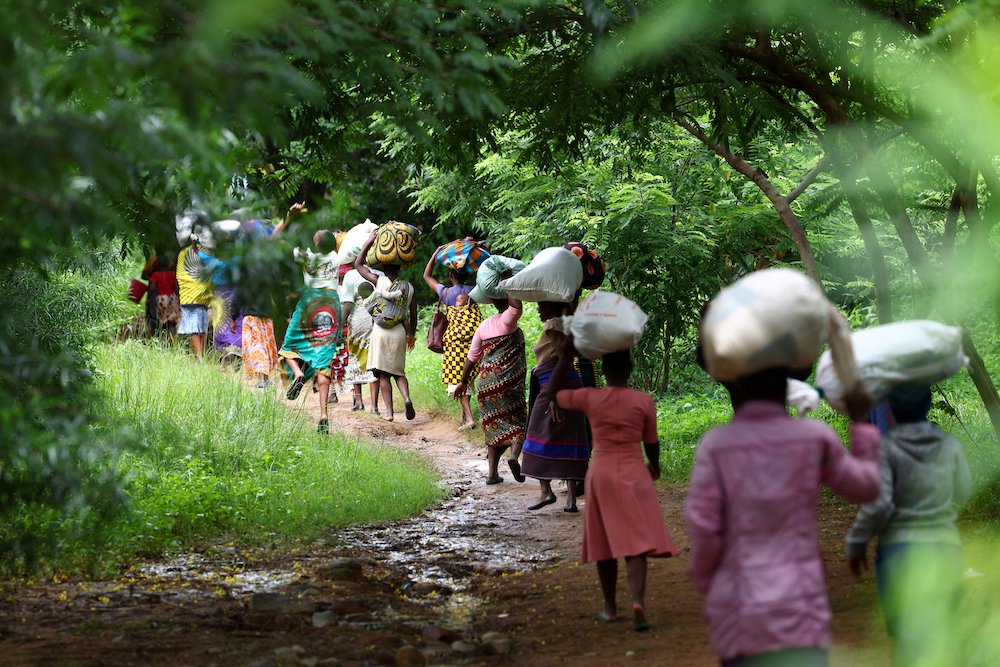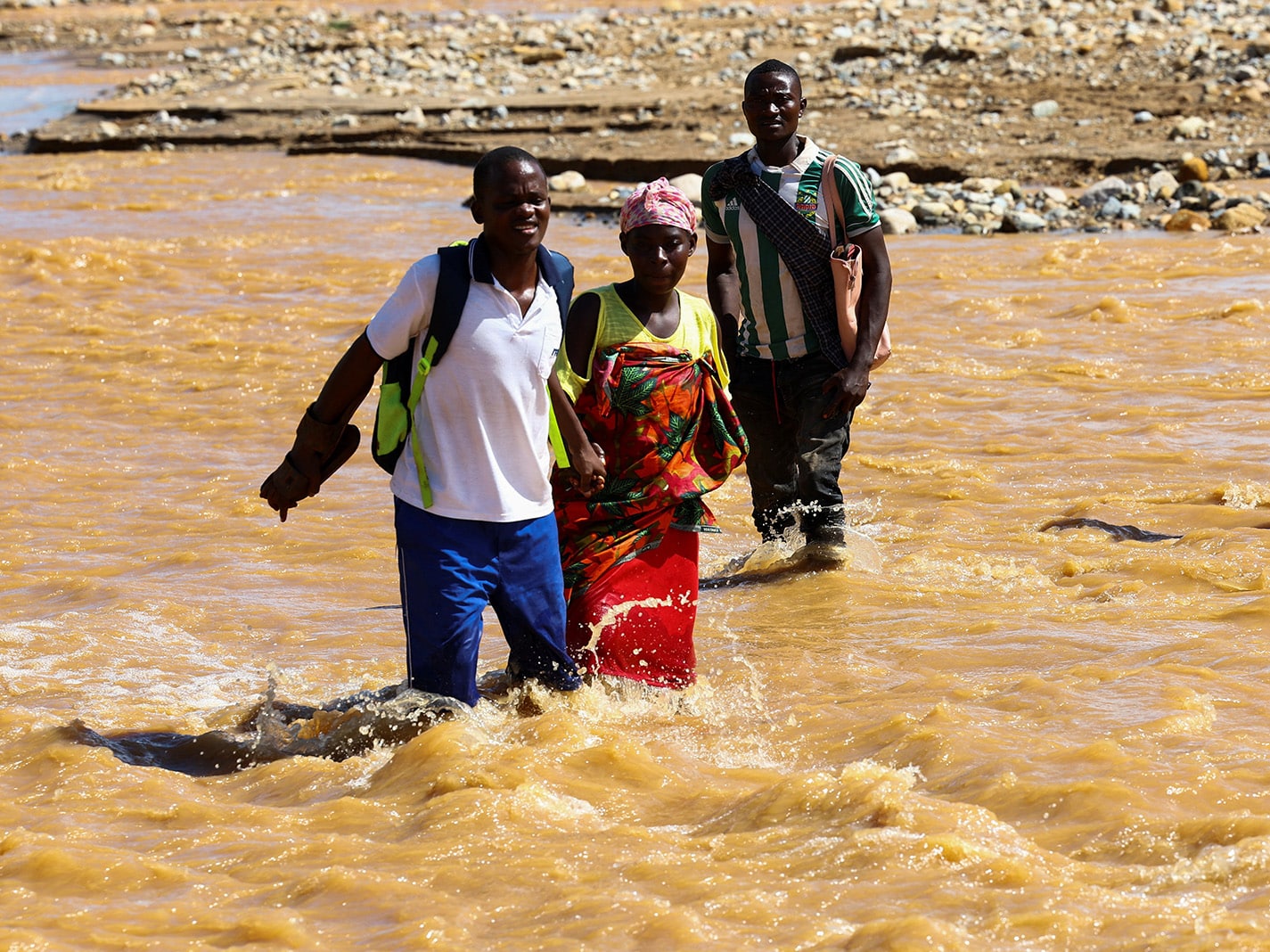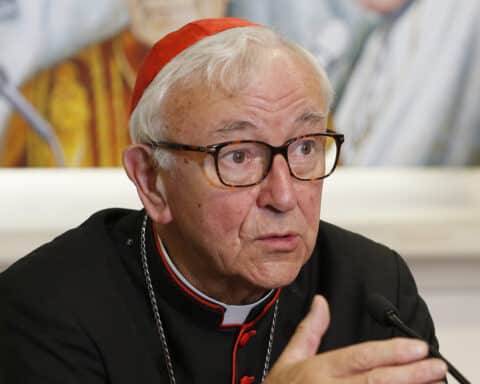LILONGWE, Malawi (OSV News) — The Catholic Church in southeastern African Malawi is rallying residents to plant more trees to tackle climate change and end the hunger crisis that has put millions of people at risk for months.
Malawi, a country of more than 20 million people, is facing food shortages largely because of the impact of climate-related extreme weather conditions. The World Food Program in Malawi estimates that 4.4 million Malawians will likely face hunger until March 2024.
Church leaders, including bishops, priests, nuns and catechists, have been distributing free corn and cash to residents, especially those affected by Cyclone Freddy in February 2023, which left hundreds of people dead and displaced millions of others. They are still living in camps, churches, and schools. On top of the tragedy, areas near the landfall of the cyclone were already struggling to recover from the impacts of cyclones Batsirai and Emnati in 2022.
But religious leaders have also started a campaign to urge residents to grow trees on farms and maintain the existing forests and trees to help alleviate poverty by providing income and food as well as restore degraded land.
Depleted forests
The research shows that the landlocked country lost about 553,280 acres of tree cover from 2001 to 2022, equivalent to a 15% decrease in tree cover since 2000 and 94 metric tons of carbon dioxide emissions. Another report indicates that the main reason for deforestation is Malawi’s dependence on wood to meet its energy needs, given that 89% of inhabitants don’t have access to electricity.

“For now, we are reaching out to families facing hunger, especially those whose maize fields were washed away during cyclone last year in March,” said catechist Alex Banda from the Archdiocese of Blantyre in southern Malawi.
“The cyclone affected us a lot as heavy floods washed away thousands of hectares of crops, and people could not harvest. So we are helping people with basic needs such as food, clothes, shelter, and medical aid,” Banda said.
“However, we are looking for a permanent solution, and that’s restoring Mother Nature by planting more trees,” he added.
Bishop Alfred Mateyu Chaima of Zomba in southern Malawi said planting trees and protecting their degraded environment would have multiple positive effects on people’s food security and overall well-being — while also noting that planting trees was the most effective way of tackling climate change caused by greenhouse gasses.
“People need to plant more trees because climatic changes and global warming is affecting the rain patterns resulting in poor harvests and making our people go to bed on an empty stomach,” Bishop Chaima told OSV News, noting that trees absorb and store the carbon dioxide emissions that are driving global warming.
“As leaders, we are at the forefront to ensure people plant trees in our parishes, dioceses and archdioceses across the country to ensure climate change doesn’t affect our crop harvests,” he said.
Bishop Chaima said his diocese was distributing tree seedlings and corn seeds for residents to plant as they continue to donate food to hunger-stricken families. He said the encyclical “Laudato Si‘” is a gift from Pope Francis for humanity to take better care of the planet, which is under constant “attack” from the “devastating effects of climate change.”
“It’s a wake-up call to Malawians to protect and take care of the environment for the common good of man because this country, especially my diocese, was hit the hardest by Cyclone Freddy, and people are suffering until now, and we have to continue sustaining them by giving them relief food,” he said.
Subsistence farming
Auxiliary Bishop Yohane Suzgo Nyirenda of Mzuzu in northern Malawi said his diocese had already started planting trees in different parishes, and he was planning to plant more than 10,000 trees before March.
The bishop said 80% of Malawians depend on rainfed subsistence farming to feed themselves and their families. However, he noted that climate change was making agriculture increasingly challenging and unpredictable, contributing to high levels of hunger and poverty among residents.
“The country is experiencing the effects of climate change because there are no trees. People have cut down all the trees to make charcoal, which also releases carbon into the atmosphere,” he explained. “It’s now time to stop deforestation and replace the trees we have cut to save the next generation.”
“It’s everyone’s responsibility to care for the environment, and I appeal to citizens to plant more trees in their homes, schools, places of work and bare fields,” he added.





